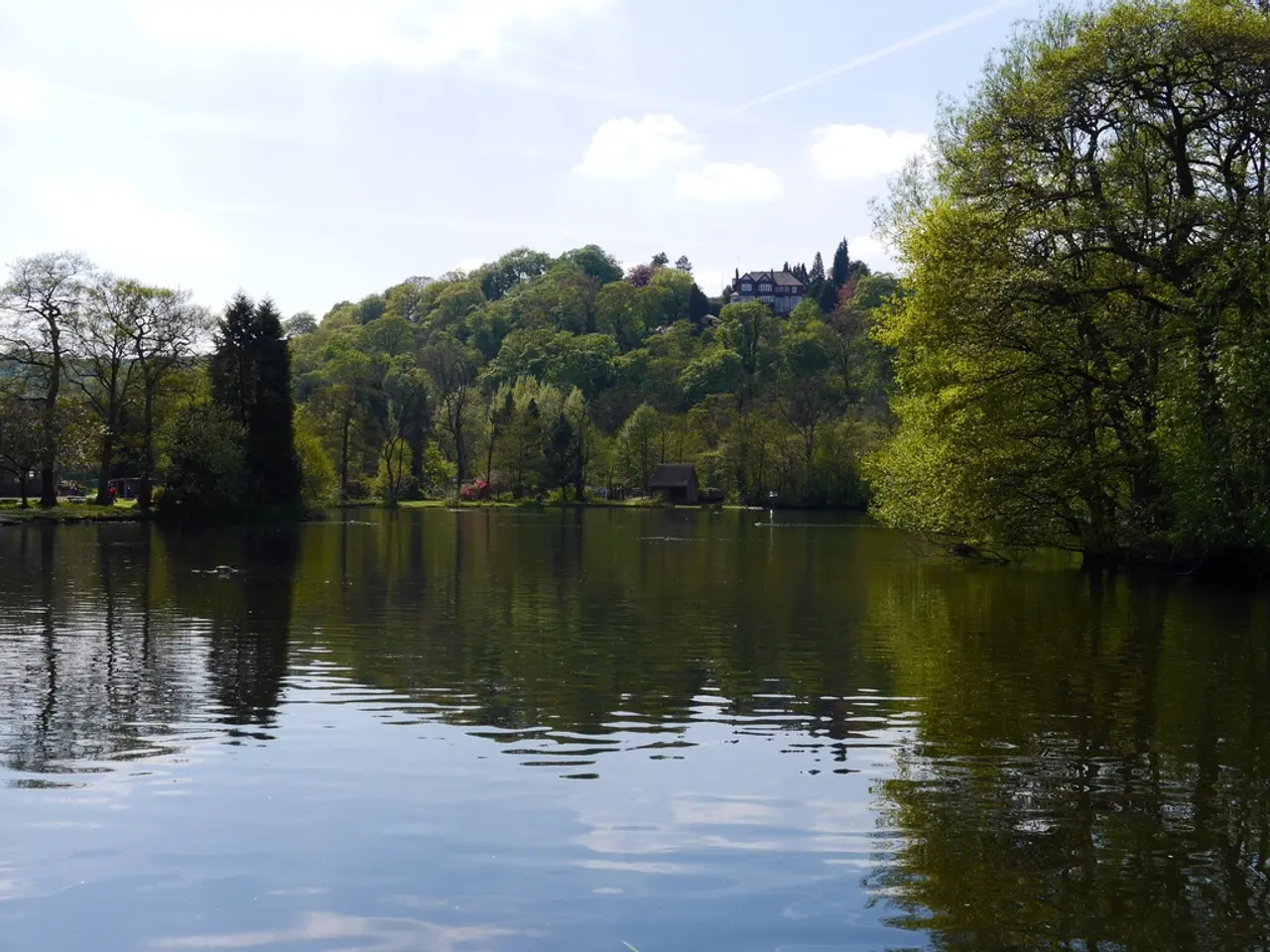In the face of escalating climate risks, Bengaluru, India, is taking action to preserve its dwindling lakes
In the heart of India's fast-growing tech hub, Bengaluru, a significant effort is underway to conserve and restore its lakes. The city, once home to over 250 lakes in the 1970s, now has roughly 180 remaining, many of which are in a poor state.
A severe shortage of drinking water in 2024 has made lake conservation a top priority for city authorities. The revival of suburban Jakkur lake, led by volunteers, and the 'Doddajala Lake Conservation Trust,' received a national award in 2019. Similarly, the Doddajala Lake, a 94-acre body of water near the city's airport, has seen efforts to combat the growth of weeds fed by nitrogen and phosphorous from sewage.
Ramprasad, a co-founder of Friends of Lakes, emphasises that restoration efforts should prioritise harvesting rainwater to defend against floods and restore groundwater. City authorities and volunteers have cleaned and restored dozens of lakes in recent years, with the aim of ensuring the lakes can defend against flooding and bolster the city's water supply.
The health of Bengaluru's lakes is critical for the city's water needs, both underground and for the ecosystem. Lakes can help replenish groundwater, allowing more water to be extracted during hot summer months. However, a 2017 study found that 85% of Bengaluru's water bodies are polluted.
Bhargavi Rao, a researcher and environmental activist, states that individual efforts are well-meaning but might not be long-lasting, and that government leadership is needed for the lakes' long-term survival. Sunil Kumar and other fishermen have been working for two weeks to clean Doddajala Lake as part of a joint effort by citizen groups and local government officials.
Ramprasath Manohar, chief of Bangalore Water Supply and Sewerage Board, notes that the lakes' health can have wide-ranging implications for a region facing weather extremes amid a warming climate. The lakes' revival is not just about ensuring a steady water supply, but also about preserving the city's ecosystem and preparing for the challenges of a changing climate.
For many, like Kumar, the lake's revival means a return to fishing and a chance for more people to enjoy the lake. R. Byregowda, the head of the nearby Doddajala village, attributes the growth in the area to its proximity to the airport. As the city continues to grow, the conservation and restoration of its lakes will be crucial for both its present and future water needs.
Read also:
- Increased Number of Uninsured Individuals May Push Local Healthcare Facilities to Their Limit
- Pokhara Regional Health and Technical Service Written Exam Results for 5th Level, Released by Lok Sewa Aayog
- Healthcare Support Hub in Augsburg
- CDC advisory body decides against advocating widespread vaccination for all U.S. citizens regarding COVID-19





